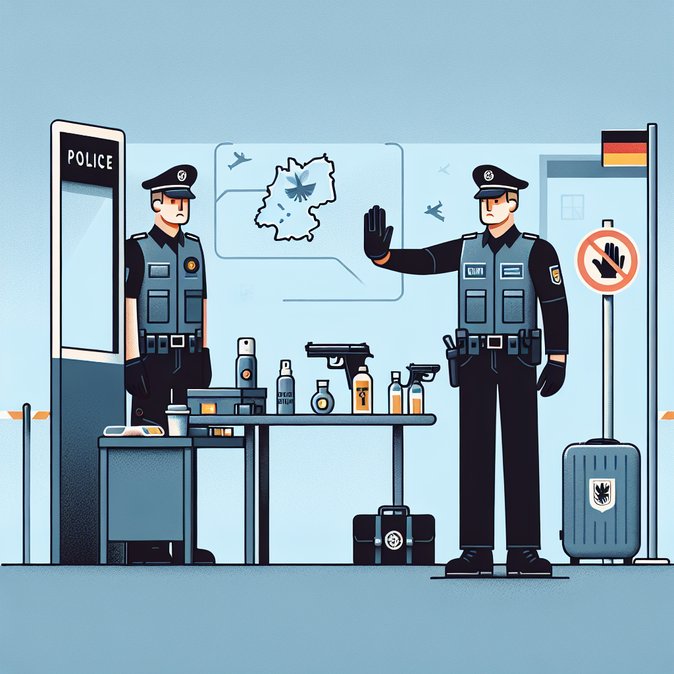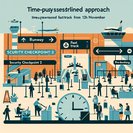
Federal Police in Bad Bentheim reported a sharp rise in illegal-weapon finds along the Lower-Saxony stretch of the Dutch–German border, attributing the increase to spot checks re-introduced in September 2024. By end-September 2025 officers had already logged 122 firearms and knife offences, surpassing the 112 cases recorded in all of 2024 and dwarfing 2021’s tally of 41.
Seized items range from blank-firing pistols with modified barrels to pepper spray, throwing stars and knuckle-dusters. Most were discovered in cars and coaches using the A30/A31 corridors and on Amsterdam–Frankfurt ICE trains. Police chief Michael Schuol hailed the controls as “multi-layered operational success,” arguing that the confiscations prevent violent crime further inland.
![Border controls boost weapon seizures on Dutch–German frontier, police say]()
For cross-border commuters and logistics firms the stepped-up checks translate into longer queues at the Bad Bentheim and Bunde crossings and more frequent ID inspections onboard trains. Employers with staff shuttling between Enschede, Osnabrück and Bremen should factor in potential delays of 15-30 minutes and ensure that assignees carry acceptable travel documents and avoid self-defence sprays that may be lawful in the Netherlands but prohibited in Germany.
The trend also signals that internal Schengen controls – once an exceptional measure – are becoming semi-permanent as Berlin tightens migration and security policy. Corporates should monitor expiry dates of current ‘temporary’ checks; extensions could affect posted-worker schedules and supply-chain just-in-time deliveries.
Legal advisers remind travellers that ignorance of German weapons law is no defence. Fines start at €500 and can escalate to criminal charges. Mobility teams may wish to circulate updated do-and-don’t guides ahead of year-end travel.
Seized items range from blank-firing pistols with modified barrels to pepper spray, throwing stars and knuckle-dusters. Most were discovered in cars and coaches using the A30/A31 corridors and on Amsterdam–Frankfurt ICE trains. Police chief Michael Schuol hailed the controls as “multi-layered operational success,” arguing that the confiscations prevent violent crime further inland.

For cross-border commuters and logistics firms the stepped-up checks translate into longer queues at the Bad Bentheim and Bunde crossings and more frequent ID inspections onboard trains. Employers with staff shuttling between Enschede, Osnabrück and Bremen should factor in potential delays of 15-30 minutes and ensure that assignees carry acceptable travel documents and avoid self-defence sprays that may be lawful in the Netherlands but prohibited in Germany.
The trend also signals that internal Schengen controls – once an exceptional measure – are becoming semi-permanent as Berlin tightens migration and security policy. Corporates should monitor expiry dates of current ‘temporary’ checks; extensions could affect posted-worker schedules and supply-chain just-in-time deliveries.
Legal advisers remind travellers that ignorance of German weapons law is no defence. Fines start at €500 and can escalate to criminal charges. Mobility teams may wish to circulate updated do-and-don’t guides ahead of year-end travel.










